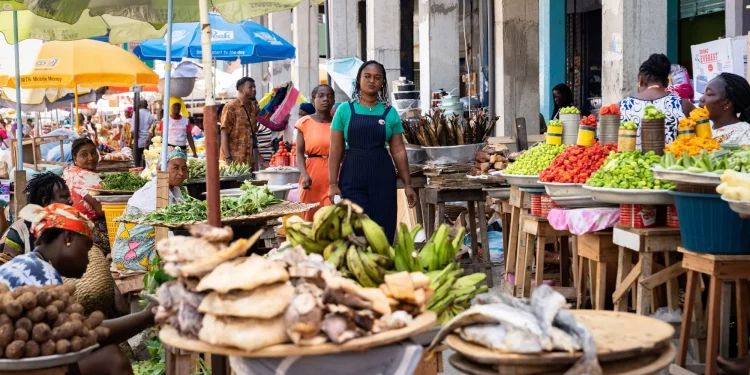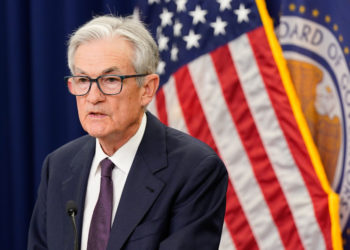Ghana’s inflation rate rose to 21.5% in September 2024, up from 20.4% in August 2024, breaking a five-month streak of declining inflation rates. This change, as reported by the Ghana Statistical Service (GSS), highlights the persistent economic challenges facing the country. Samuel Kobinna Annim, the government statistician, emphasized that the reversal was driven primarily by a rise in food prices.
Food inflation rose sharply by 3.0 percentage points, reaching 22.1% in September. On the other hand, non-food inflation dropped slightly, falling by 0.6 percentage points to 20.9%. This divergence highlights the uneven nature of inflationary pressures across different sectors of the economy. As food prices spiked, the impact was felt more acutely by ordinary citizens, for whom food remains a significant portion of household spending.
The inflation uptick came on the heels of policy adjustments by Ghana’s central bank. Just days earlier, the Bank of Ghana had announced a 200 basis-point reduction in the benchmark policy rate, bringing it down to 27.0% from January’s 29.0%. The central bank’s move reflected cautious optimism after inflation had declined for five consecutive months, thanks in part to government reforms supported by the International Monetary Fund (IMF).
In May 2023, Ghana secured a USD 3.0 billion loan from the IMF to stabilize its economy. The country had been grappling with severe fiscal pressures, including mounting public debt, a depreciating currency, and rising inflation. Bank of Ghana Governor Ernest Addison noted that the cumulative 5.4 percentage-point drop in inflation since April was an encouraging sign, reflecting early benefits of the IMF-backed reforms. However, September’s inflation rebound underscores the complexity of Ghana’s economic recovery.
The September rise in inflation signals that, while progress is being made on a macroeconomic level, structural vulnerabilities—particularly in food production and supply—remain a key challenge. The volatility in food prices reflects broader issues such as agricultural productivity, climate change impacts, and supply chain disruptions, which have exacerbated inflationary pressures.
Going forward, Ghana’s ability to sustain economic stability will depend on addressing these structural weaknesses. The country needs targeted policies that improve agricultural output, strengthen food security, and mitigate external shocks. Moreover, while the central bank’s monetary policy adjustments and IMF reforms have brought some stability, the government must continue its fiscal discipline and implement broader reforms to ensure a lasting recovery.















